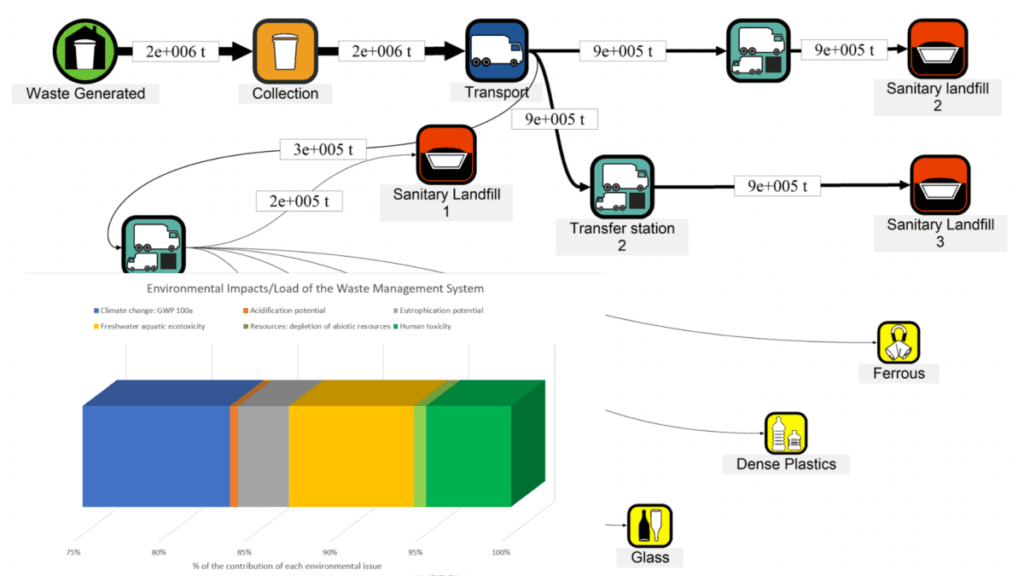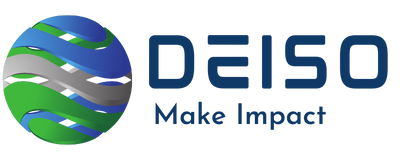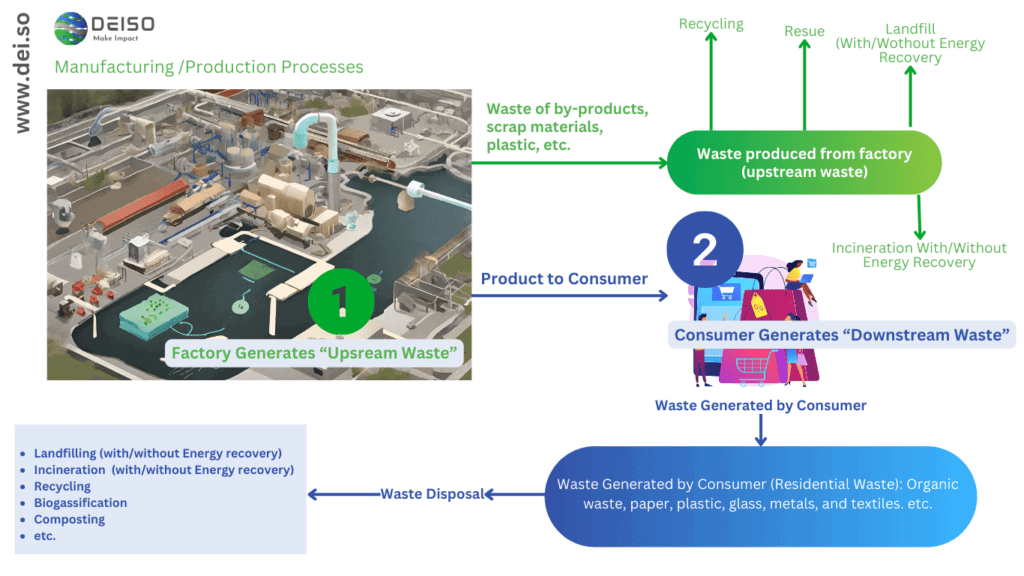Challenges
Waste management practices in developing countries should be seriously considered due to their inadequate management. Particularly, waste management practices in low-income and medium-income in developing countries, including collection services, have an overall rate below 50%. Collection services are restricted to apparent areas in several cases. Landfills are not appropriately constructed. Open dumpsites of waste are also a widespread practice in several countries. Waste is regularly burned, especially e-waste, with serious health consequences for residents and workers and contamination to air, water, and soil. They are leading to complex series of multiple environmental problems. These disposal and informal recycling practices are a high pollution source to aquifers and surrounding water bodies, and agricultural soil. Recycling activities such as informal recycling by waste pickers and recycling by the informal sector are also widely practiced. An example from the Middle East and North African (MENA) region shows that the waste management situation in Jordan (a MENA member) is 85% of the waste is disposed of in uncontrolled landfilled sites, 8% is openly dumped in which open burning is often practiced, and the remainder is informally recycling. Twenty landfill sites exist in the country. Only one landfill disposes of 35% of the country’s waste considered sanitary landfall (controlled or well-engineered); it was set up in 2009.
A severe gap in landfill design in many developing and newly industrialized countries is the limited knowledge of the quantity and quality of landfill emissions under arid and under very humid climates, especially if the waste disposal has a different composition than waste from industrialized countries. Data in this context are necessary due to the differences in the landfill design (1) regarding the leachate’s quantity and quality (2) landfill gas production, (3) long-term efficiency of the landfill systems, and (4) the high technology used in the well-engineered landfill sites in developed countries. The LCI data (or the emission factors) from uncontrolled landfill sites and open dumping sites do not exist in the commercial LCI databases. Additionally, they are scarce and limited in the literature. The leachate’s fate differs significantly from landfills in humid and dry climates; therefore, such factors should be considered when looking for suitable LCI data for those inappropriate waste disposal methods. DEISO provides data estimates for them and helps the decision-makers understand the seriousness of the emissions. They further help develop advanced management systems and comparing them with the existing inadequate systems.
Concerning electronic waste, a remarkably comparable situation was observed in many developing countries. The main issue is informal recycling activities which include (1) open burning of wires and other parts to recover metals such as steel and copper, (2) precious metals recovering from waste (Printed Circuit Board) PCBs, and (3) dumping of e-waste residues including PCBs. Also, separation and collection issues and how to deal with hazardous waste of electronic appliances once they research their end of life.

Solutions
Summary of Our Waste Management Services
-
- Quantify municipal solid waste and predict future waste generation, waste inventories, per disposal facility, management activities, sites, city, or region.
- Evaluation of the technical and environmental performance of landfills.
- Proper landfill planning and design focused on human health, environmental concerns, and energy recovery (Waste-to-Energy).
- Life Cycle Inventory (LCI) of emission factors considering the climate conditions (arid, humid, etc.) for uncontrolled (unsanitary) landfills and open landfills of municipal and electronic waste. Such data is usually required to conduct a Life Cycle Assessment (LCA) study or evaluation or assessment of the waste disposal situation (LEARN MORE).
- LCI of emission factors considering the climate conditions (arid, humid, etc.) for open burning of informal recycling. Such data is usually required to conduct an LCA study or evaluation or access the emissions situation (LEARN MORE).
- Environmental impact assessment and cost evaluation for existing municipal waste management systems.
- Environmental impact assessment and cost evaluation of municipal waste management systems or e-waste with compassion with well-designed, investigated, and evaluated alternative waste management technologies up to 5+ schemes (development of waste management scenarios).
- Electronic waste generation and estimation (inventory development) and future waste forecasts generated by single or multiple devices such as mobile phones, TVs, laptops, PCs, refrigerators, etc., of firsthand and second-hand appliances.
- Electronic waste material flow analysis (MFA) (LEARN MORE).
- Providing consulting and planning services to mitigate informal recycling issues.
- Develop systems for recycling municipal solid waste and e-waste.
- Development, planning, and consultation of waste recovery technologies (Waste-to-Energy).
- Consultation services on waste management activities such as recycling, collection schemes, waste separateration, disposing of, etc.
- Environmental and benefit evaluation of waste activities, proposed management system, or alternative systems.
- Education for Sustainable Development (ESD): ESD implementation for reducing, reusing, preventing, separating, and recycling waste in educational curriculum in schools and univariates (LEARN MORE).
Our Clients
We work for our waste management services for municipal solid waste and e-waste management services for developing countries with local municipalities, local governments, waste companies, NGOs, international funding organizations, researchers, and academic institutions.
Summary
Waste management is a stressful environmental and health concern in several developing countries. There are several concerns about its inadequate management, such as releasing pollutants to water, air, and land that impact the environment, human health, the ecosystem, and social acceptability of residents.
At DEISO, we provide a wide range of professional and expert waste management services for developing countries to mitigate the impacts of waste-related problems. Our services are comprehensive and provide practical solutions for such issues. We work with several clients and stakeholders such as local municipalities and governments, international funding organizations, NGOs, waste management companies, investors, and research institutes.
We design and evaluate environmentally friendly waste management systems that are socially acceptable and economically affordable.
Waste Analysis and Forecasting.
Quantify municipal solid waste and plan for future waste production - electronic waste inventories and forecasts, per capita, disposal facility, management activities, disposal sites, city, region, or country.
Development of Integrated Waste Management Systems
We consider the entire life cycle of municipal and electronic waste. We develop multiple and alternative waste management systems (waste management scenarios) that consider environmental, health, societal, and economic benefits, and impacts. We then help select the most advantageous integrated management system, from waste generation to recycling, transport, safe disposal, and energy generation from waste, all based on an assessment of trade-offs.
Environmentally Friendly Waste Management Systems
We conduct a comprehensive Life Cycle Assessment (LCA) of the current waste management system for a city, region, or country. Second, we compare its environmental impacts with other systems that we develop. We consider a broad range of environmental impacts such as climate change, human health, the ecosystem, and several others. We provide our customers with a complete inventory of our evaluation and an easy-to-understand comparison for each environmental issue's concern. Our focus is on resolving the most pressing environmental issues for each project and implementing an environmentally sound management system for municipal waste or e-waste.
Turning Waste into Valuable Resources
We help turn waste into valuable resources such as the utilization of waste-to-energy technologies, landfilling technologies of methane capture, recycling and composting of municipal waste, and recycling precious metals of e-waste. We assess expenses, revenues, and cost recovery for each waste management system that we develop. We also assist in the investment opportunities in waste management.
Data Supply for Academia & Experts
Researchers and waste specialists working on municipal waste and electronic waste often find it challenging to obtain Life Cycle Inventory (LCA) data to conduct LCA evaluation studies. These LCI data are often related to open dumping, unsanitary landfills, and open-burning practices. We provide our customers with estimates of these data using waste management modeling techniques.



